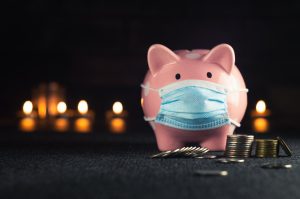
What happens if I default on my SBA loans?
Covid-19 hit small businesses hard, leading the U.S. government to initiate several programs aimed at supporting struggling American businesses. As part of the U.S. Small Business Administration’s (SBA) Disaster Assistance program, these efforts included the Paycheck Protection Program (PPP), which played a central role within the Coronavirus Aid, Relief, and Economic Security (CARES) Act of 2020. The PPP was designed to provide vital resources to small businesses, enabling them to sustain their payrolls, rehire laid-off employees, and cover essential overhead costs during these challenging times. The CARES Act, along with the subsequent Coronavirus Response and Consolidated Appropriations Act of 2021, swiftly delivered direct economic assistance to American workers, families, small businesses, and various industries in need.
What was the plan?
 Riverside County Bankruptcy Lawyer Blog
Riverside County Bankruptcy Lawyer Blog

